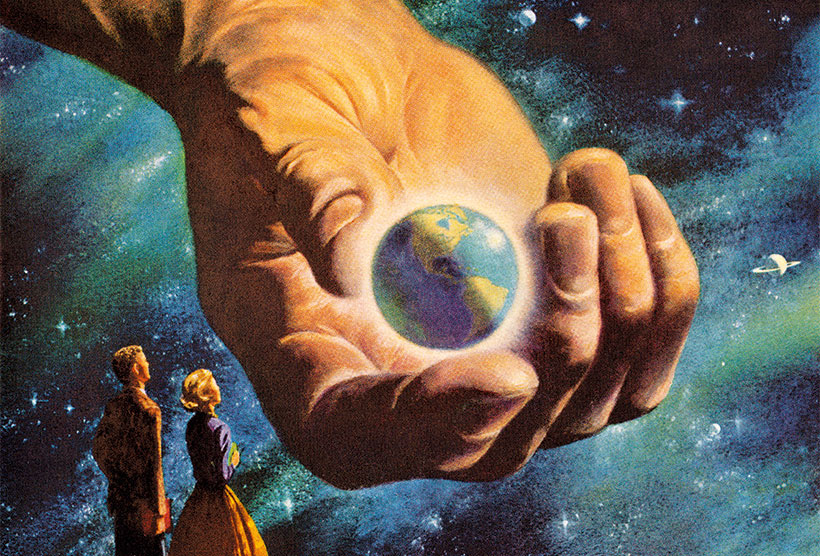Last Monday night and Tuesday were our Jewish festival of Purim, when we recall the events described in the Book of Esther. It is the oddest of all festivals. There is rejoicing, which starts two weeks before at the beginning of the Jewish month of Adar. There’s a celebratory meal on the day itself. We send charitable gifts to the poor and presents to friends. There’s riotous noise during the reading of Esther whenever the name of the arch-villain Haman is mentioned. And it’s the one day in the year when it’s considered a religious duty to drink slightly too much alcohol. This might fit within the conventional parameters of rejoicing were it not for what the book of Esther records: the most drastic warrant for genocide in Jewish history, Haman’s plan ‘to destroy, kill and annihilate all the Jews — young and old, women and children — on a single day’. The plan was foiled. Yet it is deeply strange to regard an escape from genocide as an occasion for rejoicing. What I think Purim is is not expressive joy but therapeutic joy: the joy that defeats fear. You conquer terror by collective celebration. Precisely because the threat was so serious, you refuse to be serious — and in that refusal you are doing something very serious indeed. You are denying your enemies a victory. You are declaring that you will not be intimidated. Someone once summarized the main Jewish festivals in three sentences. ‘They tried to destroy us. We survived. Let’s eat.’ Joy is the Jewish way of defeating hate. What you can laugh at cannot hold you captive.
In my new book, Morality: Restoring the Common Good in Divided Times, I argue that without a return to a shared commitment to the common good, liberal democracy will fail. The free market and the democratic state are not sufficient in themselves to sustain a free society. As the sense of moral community has faded, we have had increasing economic inequality, dysfunctional politics, threats to freedom of speech at universities, public shaming by social media, and a breakdown of the arenas such as family and community in which we learn the choreography of interpersonal grace and the habits of the heart that make for virtue. It is the most countercultural book I have written, and also the one I felt most urgent. We need less ‘I’, more ‘we’.
The last thing I could have expected while writing it was the coronavirus outbreak. Yet in the past few days Clare Foges in the Times of London and Allison Pearson in the Telegraph both asked: can the ‘Me generation’ be relied on to make sacrifices for the sake of others or will their own comfort and convenience come first? Foges cited the case of a Russian, Alla Ilyina, who escaped a coronavirus quarantine in St Petersburg and posted a video about it on Instagram, declaring: ‘I have a right to my freedom.’ It would be terrible indeed if it took a pandemic to remind us that freedom is collective and requires both responsibility and restraint.
You always take a risk when you write a book. You never know who is going to take issue with what you’ve written. Not everyone is going to see things the way you do. My favorite story along these lines was told to me by the American lawyer Alan Dershowitz. Alan is a secular Jew but some of his relatives, an uncle especially, are very religious indeed. On one occasion Alan wrote a book about legal issues in the Bible. He called it The Genesis of Justice. Thinking his uncle would approve of him devoting time to studying the sacred text, he sent him a copy. Some weeks later he phoned him up to hear his reaction. ‘There is only one word in the book I would like you to change,’ the uncle said. ‘Which word is that?’asked Alan. ‘Dershowitz’ was his uncle’s reply.
I recently celebrated my 72nd birthday. Nothing special about that except for a sense of sheer improbability, having grown up with The Who singing ‘Hope I die before I get old’, one of the defining lines of the 1960s. Could any of us have thought then that Rod Stewart would still be wowing the crowd at the Brit Awards at 75, or Mick Jagger restarting his acting career at 76, or that Sir Paul McCartney would sing at Glastonbury this coming summer when he will be 78? Or that in the United States, the contestants for the Democratic presidential nomination would be Bernie Sanders, 78, or Joe Biden, 77? What all these people have understood is what the Israeli president Shimon Peres said when asked, at the age of 91, how he stayed so young. His reply? Never retire.
And if the old are getting younger, the young are getting older. I was doing a Thought for the Day on BBC Radio’s Today program on Valentine’s Day, and in the course of it I mentioned our grandchildren. Our daughter was listening at the time with her own daughter. She said to her: ‘That’s sabba [the Hebrew word for grandpa] and he’s talking about you.’ With unshakeable poise our four-year-old granddaughter looked up and said: ‘Oh, how embarrassing.’
This article was originally published inThe Spectator’s UK magazine. Subscribe to the US edition here.



















